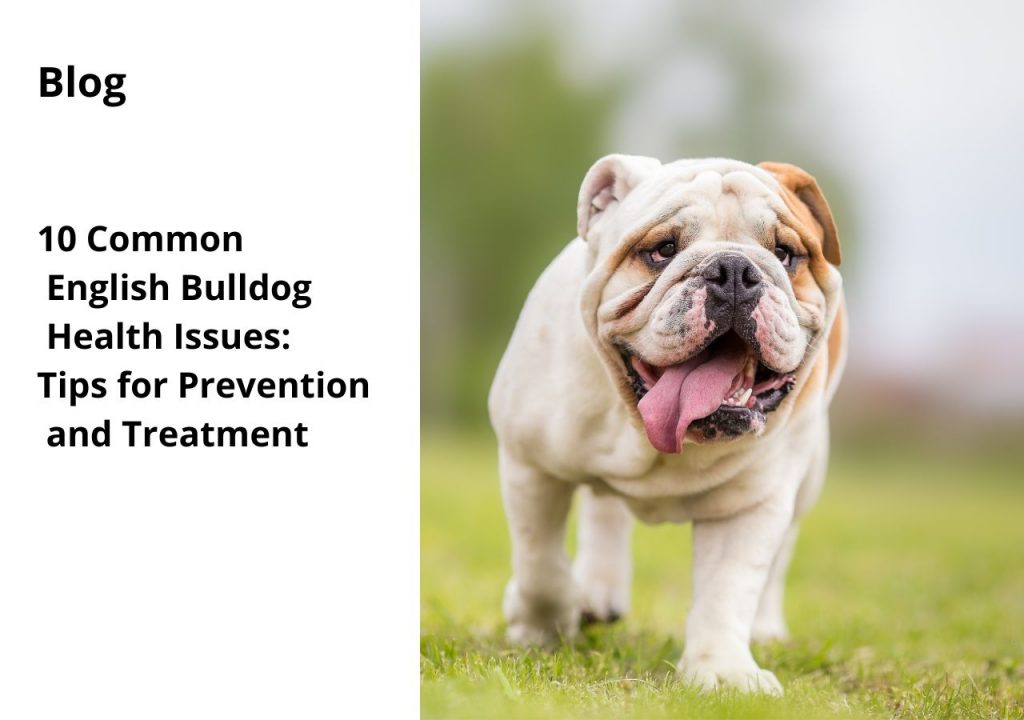Neutering is a big decision for any pet owner, especially when it comes to a breed as unique as the English Bulldog. If you’re wondering about the best time to neuter an English Bulldog, you’re not alone. Many bulldog owners struggle with this choice, weighing the benefits and potential drawbacks. In this guide, we’ll reveal everything you need to know about bulldog neutering, including the ideal timing, cost, pros and cons, and what to expect before and after the procedure.

What Is Neutering and Why Do It?
Neutering (castration) is a surgical procedure that removes a male dog’s testicles to prevent breeding. It’s a common practice among responsible pet owners and breeders to control the pet population and improve a dog’s health and behavior.
But why neuter an English Bulldog specifically? Well, this breed is known for being stubborn, territorial and occasionally aggressive. Neutering can help with that and prevent testicular cancer and prostate problems.
Besides health benefits, neutering prevents unwanted litters. Let’s be honest—bulldogs are expensive and require a lot of care. Breeding them properly is a challenge and accidental litters can be overwhelming. By neutering your bulldog, you will not only prevent unwanted litters, but will also do a lot for his health.
When to Neuter an English Bulldog
The right time to neuter an English Bulldog depends on:
- Health condition – Bulldogs are prone to breathing issues and sensitive to anesthesia, so timing is everything.
- Size and growth – Some vets recommend waiting until the dog is fully grown to avoid bone development issues.
- Behavioral concerns – If your bulldog is showing aggressive behavior or marking excessively, earlier neutering might help.
Recommended Age for Bulldog Neutering
Vets generally recommend neutering an English Bulldog between 12 to 18 months. This allows your bulldog to grow and develop properly before undergoing the procedure. Bulldogs are a brachycephalic breed, meaning they have short snouts and breathing difficulties, which makes anesthesia riskier. Waiting until they are fully developed can reduce the risk of complications.
However, if your bulldog is showing signs of aggressive or territorial behavior early on, some vets may suggest neutering slightly sooner. On the other hand, some owners prefer to wait until after 18 months to ensure optimal bone and muscle growth. It’s always best to consult with a vet experienced in bulldog care to determine the ideal timing for your dog’s specific needs.
My personal experience? I was in a rush to neuter my bulldog early because he started getting territorial. However, my vet suggested waiting until he was closer to 12 months. In hindsight, I’m glad I waited—his body had more time to develop, and the recovery process was much smoother.
Pros and Cons of Neutering My English Bulldog
Pros:
✔ Health Benefits – Neutering reduces the risk of testicular cancer and prostate problems.
✔ Behavioral Improvement – Less aggression, reduced marking, and decreased roaming tendencies.
✔ Prevents Unwanted Litters – No risk of accidental puppies (bulldog breeding is difficult and expensive).
✔ Longer Lifespan – Studies suggest neutered dogs live longer due to fewer reproductive health risks. Beisdes, their hormonal level is more stable.
Cons:
❌ Potential Weight Gain – Bulldogs are already prone to obesity, and neutering can slow metabolism. Due to this fact, you need to pay a special attention to your English bulldog’s diet. Do not everfeed him and make sure he gets enough daily strolls.
❌ Surgical Risks – Anesthesia is a concern for bulldogs due to their breathing issues.
❌ Hormonal Changes – Some dogs experience slight personality shifts post-surgery.
❌ Delayed Growth in Some Cases – If done too early, it can affect muscle and bone development.

Bulldog Neutering Cost: What to Expect?
One of the first things that comes to mind when considering bulldog neutering is the cost. So, how much does it actually cost to neuter an English Bulldog? It depends on a few factors:
- Your location – Veterinary costs tend to be higher in urban areas.
- The vet clinic – Private clinics often charge more than animal shelters or low-cost clinics.
- Bulldog-specific risks – Because English Bulldogs have a higher risk under anesthesia, some vets may charge extra for pre-anesthesia testing or monitoring.
- Additional fees – Bloodwork, pain medication, and post-op care can add to the total cost.
On average, neutering a bulldog costs between $200 and $800, but in some cases, it can go over $1,000 if extra precautions are needed. Some non-profit organizations and shelters offer discounted or free neutering programs, so it’s worth checking local resources if cost is a concern.

How to Prepare Your Bulldog for Neutering
Before the Surgery:
- Fasting – Most vets require your dog to fast for at least 8-12 hours before surgery.
- Hydration – Make sure your bulldog is well-hydrated the day before.
- Vet Check-Up – A pre-surgical exam ensures your dog is healthy for anesthesia.It’s very important to check whether your dog’s heart can handle anesthesia.
What to Bring to the Vet:
- Leash & harness
- Comfort blanket or toy
- Emergency contact details
- You can also place your personal piece of clothes so your dog can feel more relaxed before a procedure. When a dog feels their owner’s smell, it feels more relaxed.
What Happens During the Procedure?
The surgery itself is pretty straightforward.
- Pre-Anesthesia Prep – Your vet will administer anesthesia and monitor your bulldog’s vitals.
- Surgical Procedure – A small incision is made, and the testicles are removed.
- Stitching Up – The incision is closed, and your dog is placed in recovery.
- Waking Up – Bulldogs take longer to wake up from anesthesia, so patience is key.
Most bulldogs go home the same day, but some need overnight observation.

Post-Operative Care: Helping Your Bulldog Recover
Recovery is crucial for your bulldog’s health.
- No jumping or running for at least 10-14 days.
- Check the incision daily for signs of infection (redness, swelling, discharge).
- Light meals – Bulldogs may have a reduced appetite post-surgery, so offer soft food.
- Use a recovery suit or cone – Prevents licking the incision area.
My bulldog hated the cone, so I got a soft recovery suit—it worked like a charm!
Behavioral Changes After Neutering a Bulldog
Not all bulldogs have drastic personality changes, but some common post-neuter behaviors include:
- Less marking and humping.
- Reduced aggression towards other dogs.
- Increased laziness (watch for weight gain!). You should not overfeed your bulldog with snacks and his activity should stay the same. Instead of using commercial ones, I recommend you to give your dog fresh fruits and veggies.
Common Myths About Bulldog Neutering
❌ Myth: Neutering makes dogs fat.
✅ Truth: Overfeeding and lack of exercise cause weight gain, not neutering.
❌ Myth: Neutering changes a dog’s personality completely.
✅ Truth: Your bulldog will still be the same goofy, stubborn pup—just with fewer hormone-driven behaviors.

Will neutering stop my bulldog from marking?
Yes, neutering reduces urine marking but won’t stop it overnight. Marking is often hormone driven so once the testosterone drops after neutering (which can take a few weeks to a couple of months) the marking will decrease.
But marking can also be a learned behavior or a response to stress, changes in the environment or to establish dominance. Neutering helps but consistent training, positive reinforcement and proper housebreaking are still needed to stop marking behavior altogether. If your bulldog is still marking excessively after neutering it might be worth consulting a trainer or vet for further advice.
Should You Neuter Your Bulldog? Wrapping Up
At the end of the day, neutering a bulldog is a personal choice. While there are clear health and behavioral benefits, timing is everything. My advice is to talk to a vet who has experience with English Bulldogs. Consider your dog’s health, behavior, and lifestyle before making the decision.
READ ALSO: 5 Types of English Bulldog Ears To Know



